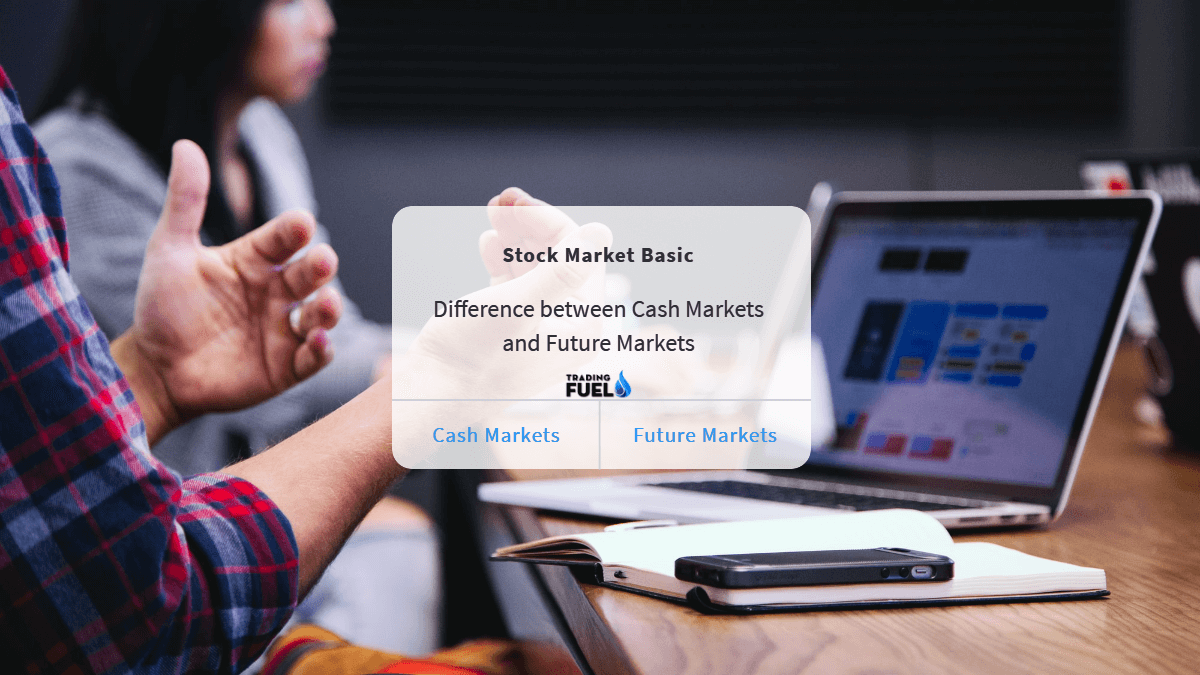Cash Markets and Future Markets are a part of the financial markets. Financial markets play a very crucial role in shaping the economy as they provide a means of saving for the investments made. Financial markets are often classified based on the time of delivery.
What is a Futures Contract?
A futures contract is an agreement to buy or sell a particular commodity at a specified date for a predetermined price.
Future contracts are also called “proxy instruments” and can be liquidated when a cash purchase or sale is completed.
What is the Future Market?
A future market is a marketplace wherein an individual trades futures contracts for commodities, stock indices, currency pairs, and interest rates at an agreed-upon price and at a pre-determined date. It, thus, helps in protecting investors and traders from losing money in any particular transaction even if the price of such a commodity or stock rises or falls later.
There are two main purposes of future markets:
- Price discovery: Here, buyers and sellers from all over the world interact with each other to determine prices.
- Risk of transfer price: -This particular concept gives buyers and sellers of commodities an opportunity to determine prices for future delivery. This entire price risk transfer process is called hedging.
For example, a wheat farmer has the risk of losing money if the price of wheat falls before harvest and sale. But with future markets, the farmer can minimize the risk by selling a wheat future contract that will eventually guarantee the farmer a predetermined price.
What is a Cash Contract?
A sale on the stock exchange requires settlement in cash within a certain time on the day the contract is made.
What is a Cash Market?
A cash market is a marketplace wherein the commodities or securities purchased are paid for or received at the point of sale (POS), hereby making it a POS transaction. In simple words, the stock exchange is a cash market because here investors receive shares immediately in exchange for cash.
The cash market is also known as the spot market or physical market.
Main differences between Cash Markets and Future Markets:-
As we know that both the future and cash markets are different, here are a few differences between the two:-
| Basis | Future Market | Cash Market |
| Ownership | One can never be a shareholder because the investor holds positional stocks which need to be traded at the end of the agreement. | One can be a shareholder only till the investor holds the share |
| Payment | A small or token amount has to be paid while buying the trade. | The whole amount has to be paid during the transaction date |
| Size | A specific amount or a pre-fixed lot size needs to be purchased in the future market | A transaction can also be done with the purchase of a single share. |
| Purpose | Speculation and Hedging risk | Buying trades and shares in the market |
| Tenure | For a specific time, i.e., till expiration, usually 3 months | Hold for a lifetime. Sometimes the stock can also be passed on to the future generations |
| Dividend | You will never receive any dividend | Will receive dividends as you become one of the shareholders of the company |
| Risk | More risk as you have to be ready to bear a loss | Lesser risk of loss as you can decide when to sell. |
| Regulatory Body | Securities & Exchange Board of India (SEBI) and Forwards Markets Commission (FMC) | Bombay Stock Exchange (BSE) or National Stock Exchange (NSE) or Commodity Exchange or Foreign Exchange Market |
Conclusion:-
The Cash Market and the Future Market are both the financial markets wherein the government, the general public, as well as companies, get a commonplace to trade in financial instruments. Both markets help you to yield returns at some point after trading, but with a risk factor attached. Both the markets look similar as well, but they are different and appropriate in their own way.
About Us:-
Trading Fuel is our blogging website which provides you with enriched knowledge regarding finance and several trading tips. We put you up to date with our several other economic blogs that further help you with your investments. Stay tuned with us for more such interesting blogs and email us your queries.

